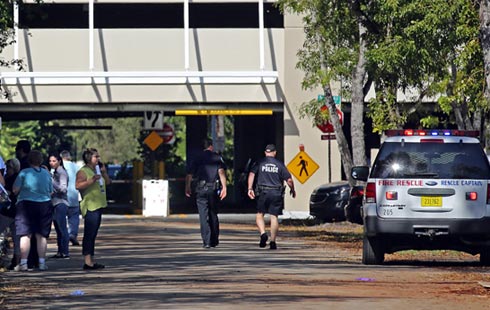S Korea to deploy US missile defense system to southeastern region
SEOUL -- South Korea's defense ministry on Wednesday announced an agreement with the United States to deploy the US missile defense system, called Terminal High Altitude Area Defense (THAAD), to its southeastern region despite continued opposition from neighboring countries.
One THAAD battery will be deployed to the Seongsan-ri region of the Seongju county in North Gyeongsang province, where South Korean Air Force's Hawk surface-to-air missile battery is located.
Yoo Jeh-seung, deputy defense minister for policy, said at a nationally televised briefing that the county was proposed as the best site to maximize military effectiveness and secure safety of residents in the region, which was approved by defense ministers of South Korea and the United States.
After Friday's decision between Seoul and Washington to deploy US interceptors in the South Korean soil, the decision for the deployment site was announced earlier than expected amid mounting opposition and controversies at home and abroad.
On Friday, Seoul said the site would be announced within weeks, but nationwide protests against the THAAD deployment had spread especially in candidate sites, prompting the country to announce it just five days after the deployment decision. The two countries aim to deploy the US missile defense system in the site by the end of next year.
China and Russia have expressed strong opposition to the THAAD deployment in the South Korean soil as its X-band radar can spot Chinese and Russian territories far beyond the Democratic People's Republic of Korea (DPRK).
The AN/TPY-2 radar can detect 600-800 km with a terminal mode, which South Korea plans to adopt, but it can be converted at any time, and takes less than a day to change, into a forward-based mode that ranges as far as 2,000 km because the two versions have the same hardware.
The THAAD battery will be operated by the US Forces Korea (USFK) and the radar operation will not be made transparent.
"Even if (Seoul and Washington) try to politically promise (not to keep watch on Chinese and Russian territories), such pledge has no meaning in technical terms," said Cheong Wooksik, director of Peace Network, a local civic group.
- THAAD a threat to peace and regional order
- DPRK warns of 'physical measures' against deployment of THAAD in ROK
- THAAD a threat to peace and regional order
- DPRK warns of retaliation against THAAD deployment by US, ROK
- Deployment of THAAD far exceeds Korean Peninsula's defense needs: Chinese FM
- THAAD is US ploy to destabilize region






















